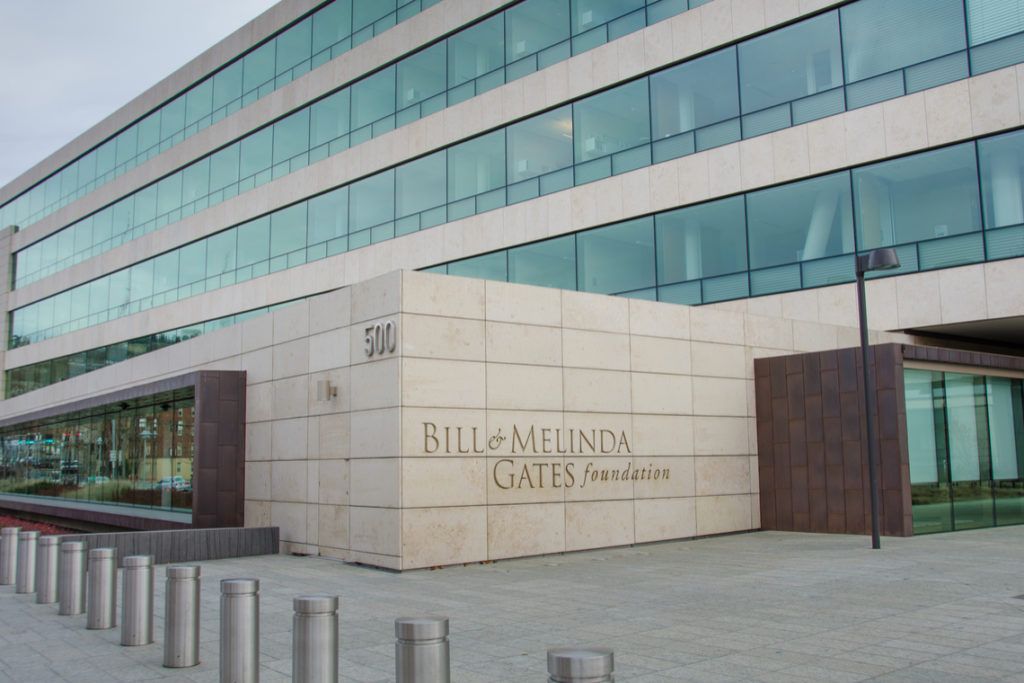In an attempt to provide a solution to the unbanked people across the world, The Bill and Melinda Gates Foundation is partnering with both Ripple Labs — the U.S. based technology company behind the famous XRP cryptocurrency — and Coil, a blockchain start-up founded by Ripple’s ex-CTO Stefan Thomas.
In a recent tweet by Miller Abel, Deputy Director and Principal Technologist at the Bill & Melinda Gates Foundation, Abel highlights the foundation’s interest in Ripple’s Interledger protocol — an open protocol that facilitates payments across multiple blockchains while enabling faster cross-border payments. These features are crucial to those living in developing countries.
The partnership looks to discover new ways to support pro-poor payments systems through the use of Mojaloop, an open source payment handling tool that was built using the Interledger protocol. According to a report by the World Bank, there are around 1.7 billion people worldwide that lack an account at a financial institution or mobile payments provider, the overwhelming majority of which are from developing countries. The data highlights China, India, Pakistan, and Indonesia as the largest unbanked populations, comprising more than 600 million people combined.We are partnering w/ @ripple and @coil to implement the #Interledger Protocol & explore ways #Mojaloop can support pro-poor payment systems. #githubuniverse
— Miller Abel (@MillerAbel_) October 17, 2018

Blockchain Based Financial Services
A lack of clear identification information is one of the major factors contributing to the issue. Without an officially recognized form of ID, access to banking services is very difficult. The Gates Foundation has been exploring the use of blockchain technology to help develop digital money systems in Africa and Asia since at least 2015 through its Level One Project. Blockchain technology may have the potential to provide the underprivileged and those in developing economies with access to a level of financial services that were previously unavailable. The use of digital identities, mobile payment platforms, and biometric security is gearing up to reshape the way people access and transmit their money. Do you think blockchain technologies can help the world’s unbanked poor gain access to crucial financial services? Why do you think the Gates Foundation chose Ripple’s Interledger protocol for the task? Let us know in the comments below!Disclaimer
In adherence to the Trust Project guidelines, BeInCrypto is committed to unbiased, transparent reporting. This news article aims to provide accurate, timely information. However, readers are advised to verify facts independently and consult with a professional before making any decisions based on this content. Please note that our Terms and Conditions, Privacy Policy, and Disclaimers have been updated.

Daniel Phillips
After obtaining a Masters degree in Regenerative Medicine, Daniel pivoted to the frontier field of blockchain technology, where he began to absorb anything and everything he could on the subject. Daniel has been bullish on Bitcoin since before it was cool, and continues to be so despite any evidence to the contrary. Nowadays, Daniel works in the blockchain space full time, as both a copywriter and blockchain marketer.
After obtaining a Masters degree in Regenerative Medicine, Daniel pivoted to the frontier field of blockchain technology, where he began to absorb anything and everything he could on the subject. Daniel has been bullish on Bitcoin since before it was cool, and continues to be so despite any evidence to the contrary. Nowadays, Daniel works in the blockchain space full time, as both a copywriter and blockchain marketer.
READ FULL BIO
Sponsored
Sponsored
